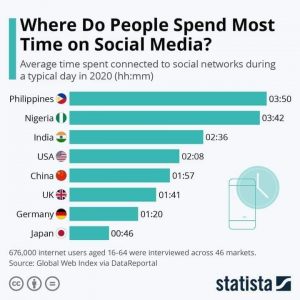By Y. Z. Yaú
It is itself a revolution when a leading promoter of IT in Nigeria such as Mallam YZ Ya’u is turning his back on social media usage, with particular reference to radical democratic politics. But this piece is not just a critique of degeneracy in radical praxis but also a treatise on the political economy of digital capitalism, touching on the false hope of technological fix, the limit and potential of protest politics and the occupying or nicotine nature of social media. Do read it but not in a hurry because, otherwise, Mallam will not get the knocks and kudos he has invited by the barbs he has thrown at radicals, the IT monopolies, social movement agitators and more! – Intervention!

The author
Three or four years ago, I toyed with the idea of doing an academic paper with the title “Fighting with their Fighters: Making Revolution in the Age of Social Mediaâ€. It was borne out of two circumstances, first my optimistic advocacy about technology as a transformative tool and secondly my excitement with the Arab spring. The Arab Spring held such a fascination for me such that it has often been a reference point for my discussion about the power and possibility of technology in social revolution. At that time, I was more taken in by the outliners of the eruption in the Arab world than in the actual developments and build-up of events and processes to the eruptions. For all it mattered, Mohamed Bouazizi, the Tunisian who set himself on fire to spark off demonstration there, was an icon, with his iconic picture in flames, inspiring up demonstrations across many cities of several Arab countries.
The hope was that we were waiting for our own Bouazizi and some saw him in the flames of the #EndSARS protests. I didn’t see him. Yet even in this, as Laeed Zaghalami contends in his article “The Internet promotes democracy, like the ‘Arab Spring’ in the book Busted: The Truth About 50 Most Common Internet Myths, “Arab Spring, if there ever was one beyond the Western narrative with this name, has neither resulted in newly democratized societies and national states, nor did the upheavals have their origins in Internet or social mediaâ€.
Ironically what prompted me to think about the paper referred about was what actually ended that naive reading that we could have the Nigerian revolution through our WhatsApp interactions. We had four years ago planned to to mark the 150 years of Volume 1 of Marx’s Capital which was published in 1867; 100 years of Lenin’s Imperialism, the Highest Stage of Capitalism, published in 1917 and the 100th anniversary of the October 1917 Russian Revolution and eventually did that in 2018. As part of the process, we set up a WhatsApp Platform, originally meant to help us in coordinating the process of the conference and communicate with prospective participants. However, later it became a platform bringing Marxists, socialists and even anarchists to discuss the possibilities of the Nigerian Revolution.
I functioned for over a year as an admin for the platform but as the days went by, it brought torture that was becoming unbearable for me. In the end I decided that rather than expelling people who are so undisciplined, I should just save my sanity and withdraw, which was what I did and left the platform. But in Nigeria, once you are on WhatsApp, it is impossible not be added to many platforms that you never asked to be added, and so it is I found myself in many groups that I did not know why I was added in the first place and not knowing what purpose I am serving by being there.
But this had afforded me an opportunity to pick up on a number of observations in this unique Nigerian cyberspace that I would like to share here. My comments are not to all general purpose WhatsApp groups but those that claim to either be set up for the transformation of Nigeria or those that aim at a socialist or even a Marxist revolution in the country. And there are many of these but the interested reader can do a little research for himself or herself to discover them.
My first point is that people set up groups and simply add whoever they think should share their objectives, even when these objectives are not shared. The very ethic of consent is thrown away. It is ironical that many of these people who set up these groups could shout about digital rights yet the right to consent which is foundational in digital rights discourse is easily dispensed with.
Second, there is an allusion to the need to transform Nigeria. All too often this is vague that you do not get clear understanding of what the agenda is, that is if it ever was articulated. This is why often you see members arguing and abusing each other at cross purpose. The more vociferous and abusive one becomes, the more is respected in the group.
Third, the more members of the group fight among themselves and abuse each other, the more it is assumed to be revolutionary. The venom is reserved not for the bourgeois enemy or the reactionary ruling class but for the renegade comrades who could not accept the point of view of other comrades. Off our groups, we demand that government respect dissenting views but when in our groups, we are highly intolerant of dissenting views. There is such a love for abusive language that is it is celebrated as the hallmark of intellectual sophistication and evidence of great learning. We love democracy but without its imperative for plurality of views.

The nicotine dimension on a global scale
Fourth, only members of the group (or some members of the group) have the correct answers to our problems. Any other opinion is either irrelevant or reactionary. Conformity is a desired behaviour. The objective is not to sell our agenda by winning converts but more interested in scoring debating points. The binary fixation does not leave room for learning from others and the possibility of alliance building. It is either you wholly agree with or you are part of the enemy.
Fifth, there is no attempt to engage others who are outside the group. In this case, there is no need to expand the circle of the revolutionaries. Only those within can be trusted with the revolution. There is no need to win new cadres. Such outsiders will pollute our ideological purity. At any rate, they will not understand the sophisticated logic of the arguments and cannot contribute anything meaningful.
It doesn’t come off that way but if certain insiders are not certified as sophisticated, then it can only mean that the masses cannot be informed and capable of knowing what they want. They should not be involved in the high level discussion of the revolution. In this, the very tenet of Marxist credo that the people make their revolution is jettisoned. The group will make the revolution on behalf of the masses. The opinion of the masses is irrelevant and, any way, they are not socialists and cannot be socialists, and yet, we will do a socialist revolution, obviously for them.
In this, we also have no trouble in inverting democracy, not as the rule of the majority – the people – but as the rule of the most sophisticated elements. Should someone point out this, there is a ready-made answer: we have to transcend bourgeois democracy where people buy opinion with money. Here we buy opinion on the basis of robust rational arguments.
There is also the gleeful consumption of fake news and unverified reports. When these appear to support the dominant views of the members of the group, they are celebrated enthusiastically as sign that we are winning the struggle. On the other hand, where reports sharply contrast the dominant views of the members of the group, these are dismissed as fake news, not worthy of the attention of enlightened people like members of the group. What do you think of misinformation? It is good if its aids the cause of the revolution but is reactionary propaganda when it works to undermine the cause of the revolution. After all, we can cite an army of post-modernist scholars such as Jacques Derrida, Michel Foucault and Fredric Jameson to rationalise that is there is nothing like the “truthâ€â€. Everything is contingent. “Truth†is mere perspective or standpoint.
There is also the fluidity of purpose: every topic or subject is opened to discussion on the platform except those directly relating to the objectives of the group. Here, exhibitionism in theoretical demonstration is celebrated. No matter of tactics or strategy, not even a consideration of whether the revolution is a real possibility, is discussed. But there is endless discussion about the illness of the country, the inability of the ruling class to deliver but not the inability of the revolutionaries to move the revolution forward and grab power. There is plenty space for all sort of conspiracy theories.
There are no ground rules of conduct for the group, or at least, they are not respected by anyone. Debates, if they are, are not meant for building consensus among group members but rather for scoring points. There is no closure on any issue as anyone can at any time return to a past issue. There are no priority issues but the fanciful ideas of most active members. No resolutions are reached in the way of furthering the objective of the group.
As the debates become more rancorous, driven by the craving for points and attention, soon cleavages and divisions begin to emerge. In the fullness of time, factions materialize and all energy is now devoted in factional fights. In turn, factional fights lead to the collapse of the group and the emergence of new ones which are doomed to repeat the same fate and the revolution is ended before it starts.

Spaces of the Arab spring that have turned hollow
It is often given that people as a collective in an organized form, make the revolution. In the WhatsApp revolutionary narrative, no organization is needed to carry out the revolution. All you need is a torrent of posts and a flurry of debates. The WhatsApp is the organization. Because of this, no organizational issues are discussed, and no plans for building one are ever elaborated upon. Instead, the lack of organization is celebrated as a sign of democracy. Marxist theory of revolution privileges the revolutionary vanguard which has the historic responsibility of mobilizing for the revolution. Perhaps the vanguard is all online that it cannot exist offline.
Caught in the luxury of netizenship, the revolution seems to find no escape from Alvin Toffler’s world in which the working class has disappeared, and so you have Marxist revolution that will not be made by the working class and not for the working class either but for the highly combative netizens of the cyberspace. Yet as Sebastian Berg argues, “Digital instruments are used to make organizations more inclusive and reduce old barriers, but they will not replace organizations and politicsâ€.
Ok, so now we have unlimited opportunities to rant and vent our anger on the system but we do not recognize that the limitless opportunities are constrained by information overload. People are not hungry for any news or communication but thirst for persuasion, they need to be rationally persuaded to change their views. We now have communication without social mobilization. So, in all practical purposes, these exchanges in WhatsApp groups are meant for the group members and not meant for those outside. It is an elementary logic that no social revolution will take place without social mobilization.
There is also the crude and naive understanding that the social media made the Arab Spring possible and, therefore, it will make the Nigerian autumn possible. Social media did enable communication and coordination but there were already organizations to mobilize people for the spring and it was not that people were at home fiddling with the handsets that made the protest possible. There were people on the streets, in the barricades and there were people at home, behind their screens. There is also the link between these two groups of people who moved things, food, drinks, handled logistics. These cannot be done via WhatsApp!
There is also the naïve belief that social media, or indeed any technology is neutral which it is not. Technology is just an expression of social ideas which embody ideological stands and biases. How it is inserted and appropriated in society is conditioned and constrained by the social ideas that enabled the production of the technology.
In this, we often overlook two insights about technology. First, that it is mere tool and therefore subject to appropriation and reappropriation. It was not invented to carry out social revolution but it can be reappropriated. However, that has to come through the deconstruction of the embedded ideas in the technology. The second insight is that technology has historically been a site of class struggle. While it may have lessened the burden of the worker, it is in addition to alienating him from the his or her labour, the tool to take away control of the work place autonomy the worker has by the capitalists.
Closer to the internet, we miss its addictive nature and furiously keep posting but also that begets its own logic. Tristan Harris, a designer at Google, contends that “smartphones are engineered to be addictiveâ€. We get hopelessly trapped and addicted to our social media that we cannot account for how much time we spend on it. We also find we are unable to withdraw, and retrace our steps, to detox or declutter. The cyberspace is premised on the basis of attention grabbing. That is why commentators have called it the attention economy. Michael Goldhaber, author of Attention Economy and the Net warns that when we all get our website, the “increasing demand for our limited attention will keep us from reflecting, or thinking deeply (let alone enjoying leisure).â€
 We get worried when no one likes our posts, no retweets or even comment about them. Ultimately, we forget about transforming the world and become excessively concerned about the attention that our posts are getting. The reality is that internet is not meant to make revolution but to create super profits for entrepreneurs around it. So by design, it is meant to take as much of your time as possible, leaving you with no time to do the essentials for transforming society.







